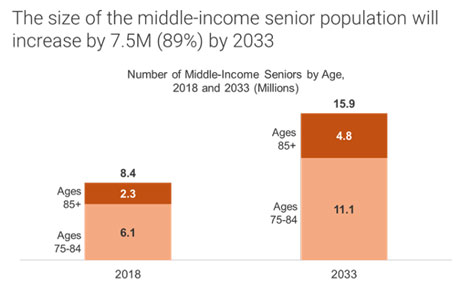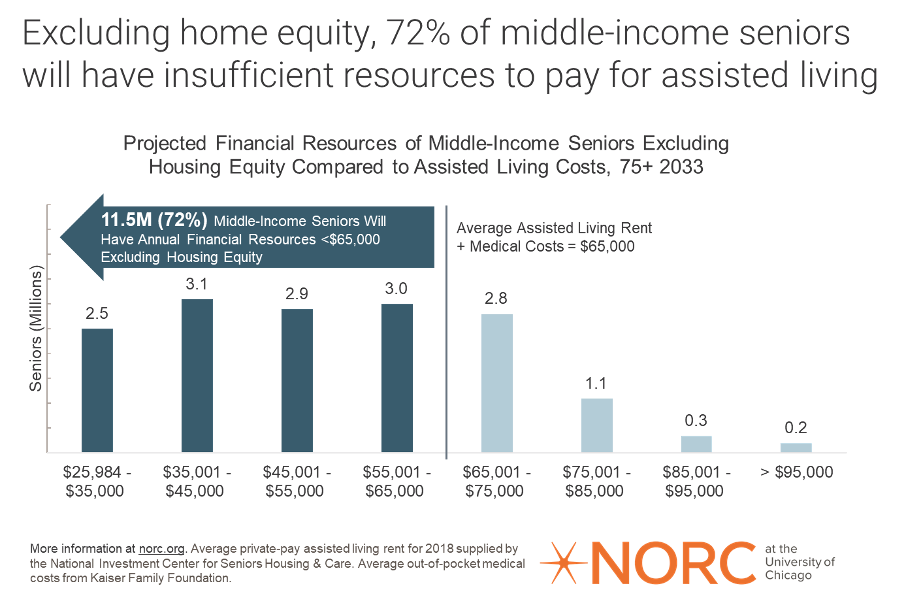CHICAGO — By 2033, more than 11 million middle-income seniors age 75 and older may not be able to pay for assisted living and are also unlikely to qualify for Medicaid to pay for their long-term care needs.
In an update to its “Forgotten Middle” study, researchers from NORC at the University of Chicago find that the middle-income cohort of seniors will grow by 7.5 million (89 percent) from 2018 to 2033. The study also found that seniors are becoming more racially and ethnically diverse, with people of color making up 22 percent of this middle-income population in 2033.
Funded by The SCAN Foundation, this new analysis examines the size, demographics, health needs and financial resources of middle-income seniors age 75 and older in 2033.
According to the study, in 2033, 72 percent of middle-income seniors (11.5 million people) will have less than $65,000 in income and annuitized assets — the average amount needed to pay for private assisted living and medical care. Even if these seniors sold their homes, 6.1 million (39 percent) would still have insufficient resources to pay those annual costs.
As people age, they may experience increasing health needs, deteriorating mobility, and cognitive impairment. These conditions can make it challenging for seniors to live independently in their homes without additional caregiving support. While many people rely on unpaid caregiving from family and friends, others will require paid support. For those who need or want it, assisted living is an important housing and care alternative.
“Without a comprehensive long-term care system in this country, for all but the lowest-income individuals, the costs of seniors housing and caregiving support fall to seniors and their families,” says Caroline Pearson, senior vice president at NORC and the lead author. “Sadly, most middle-income seniors may not have the financial resources to pay for the care they want and need.”
Other key findings include that future seniors are less likely to be married, and many do not have children living nearby. Among middle-income seniors, more than half will have three or more chronic conditions, and 56 percent will have mobility limitations. One in three seniors will face cognitive impairments, with that percentage growing to 40 percent for those 85 and older.
To read the full study results, click here.


